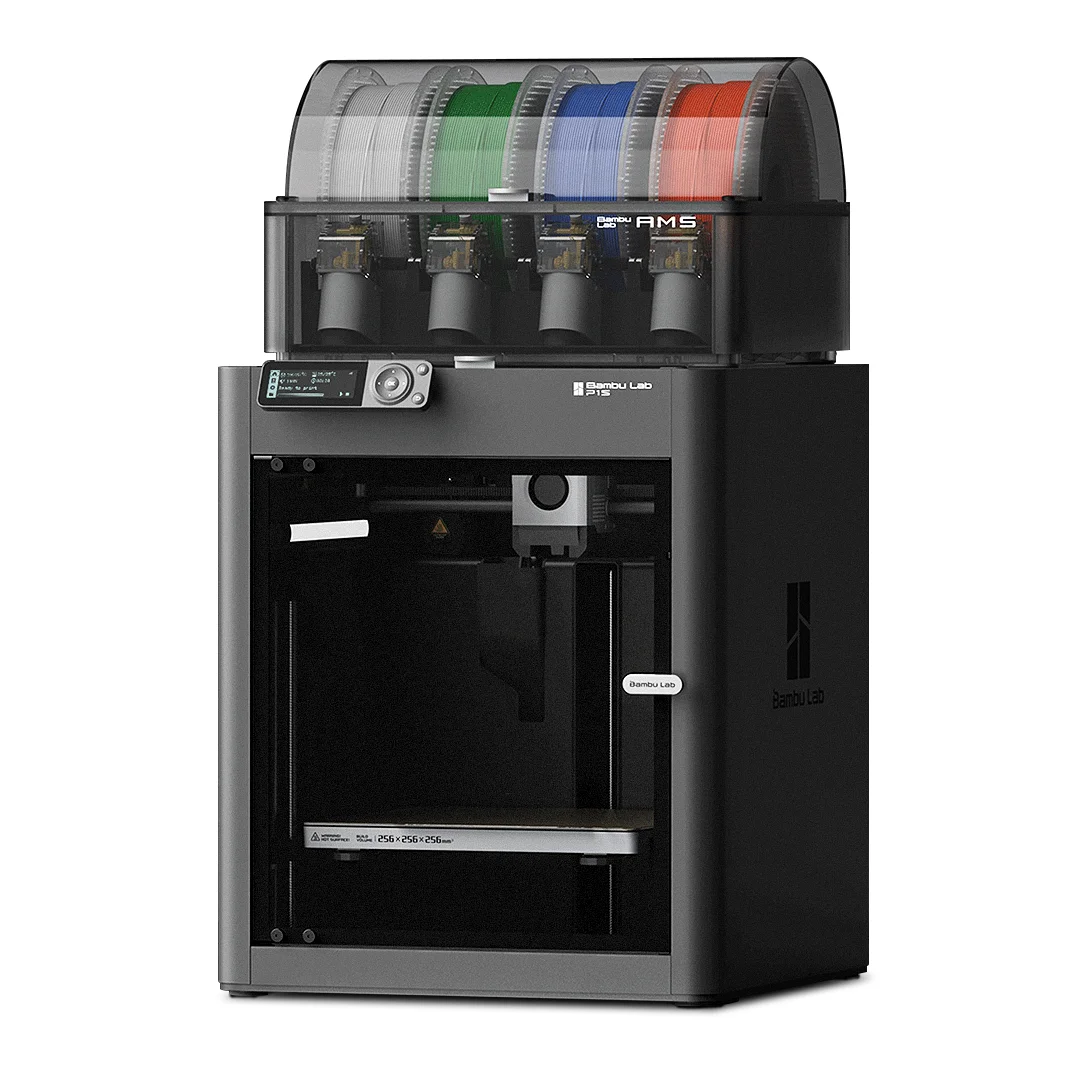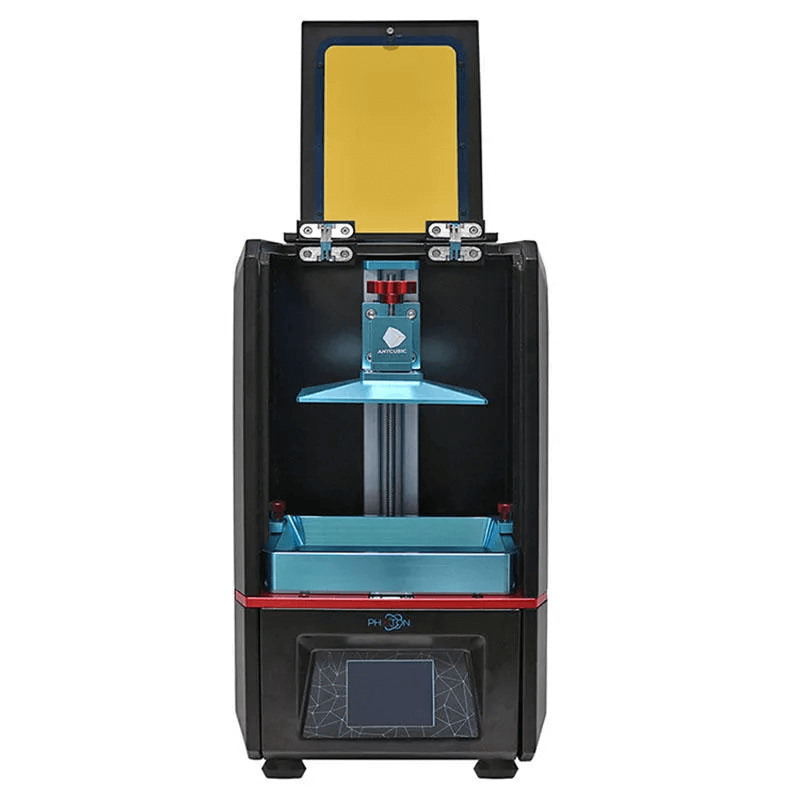Compare P1S vs Photon
Comparison between the best 3D printers
Choose the best 3D printer at the best price. The cheapest 3D printers are here.
Buy a 3D printer here with 3D Fila.
 |
 |
|
| Model | P1S[BUY P1S] |
Photon |
| Printing Material | Filament | Resin |
| Buy Filament for Bambu Lab P1S | Buy Resin forAnycubic Photon | |
| Estimated price | $949,00 | $100,00 |
| Manufacturer | Bambu Lab | Anycubic |
| Release Year | 2023 | 2019 |
| Print Volume [mm] | 256x256x256 | 65x115x155 |
| Printer Size [mm] | 389x389x458 | 220x200x400 |
| Weight [kg] | 12,95 | 7,2 |
| Power Loss Recovery | YES | NO |
| Maximum Resolution [mm] | 0,1 | |
| Processor | Quad ARM A7 1.2 GHz | |
| Display | Touchscreen 5'' | Touchscreen TFT 3,5'' |
| Power Supply | 350 W | 40W |
| Connectivity | Wifi, Bambu bus, Cartão SD | USB |
| Operating systems | Windows, Linux, Macbook | Windows, Mac, Linux |
| Date of registration in the system | 2024-04-11 | 2021-04-15 |
| Release date | 2023 | 2019 |
| Extra features | The Bambu Lab P1S stands out for its out-of-the-box practicality, eliminating the need for manual adjustments with automatic calibrations such as bed leveling and vibration compensation. It features multicolor printing capability through the AMS system, allowing up to 16 colors when connecting four AMS units. With an advanced control algorithm, the P1S offers fast printing speeds without sacrificing quality. Equipped with modern features such as filament end sensor, semi-automatic belt tension, direct extruder, welded frame and all-metal hotend, along with a fully enclosed chamber, the P1S promotes a superior printing experience, supporting a wide range of materials. | The Anycubic Photon DLP is a resin 3D printer that stands out for its affordability and quality. It uses DLP (Digital Light Processing) technology to cure resin layers with precision, offering resolution of 25-100 microns. Its build volume is 115 x 65 x 155 mm, suitable for modest-sized projects. It includes a 2.8-inch touchscreen, USB and SD card connectivity, and a carbon filter to mitigate odors. It is notable for generating efficient support structures through its custom slicing software. Although it requires care in resin handling and post-processing, it is an excellent option for beginners and professionals who want to explore resin 3D printing with high resolution and ease of use. |
| Support for multiple colors and materials (AMS and CFS) | YES | NO |
Notes * |
||
| Cost-benefit | 7 / 10 | 6 / 10 |
| Hardware | 6.4 / 10 | 0 / 10 |
| Tela | . | . |
| Print volume | 4 / 10 | 3 / 10 |
| Performance | 4 / 10 | 0 / 10 |
| [BUY P1S] |
Conclusion |
| In conclusion, the comparison between the Bambu Lab P1S and the Anycubic Photon highlights significant differences that cater to distinct user needs in the 3D printing realm. The Bambu Lab P1S, released in 2023, demonstrates a comprehensive approach to 3D printing with its larger print volume, advanced features, and impressive performance metrics. Its multicolor printing capability, power loss recovery, and automatic calibration make it ideal for users who seek a versatile machine capable of handling complex projects with ease. The higher price point reflects its robust feature set and better build quality, making it a worthwhile investment for serious hobbyists and professionals. In contrast, the Anycubic Photon stands out as an economical entry point for those interested in resin printing. Its affordability, combined with a compact form factor and reasonable print quality, makes it an appealing choice for beginners or those focused on smaller, intricate designs. However, the Photon does come with limitations, such as a smaller print volume and a lack of advanced features, which might restrict more experienced users seeking versatility. Ultimately, the choice between these two printers should be guided by the intended application, budget considerations, and the user's level of expertise in 3D printing. The P1S is better suited for those willing to invest in a higher-end machine for diverse applications, while the Photon serves as an excellent gateway into the world of resin printing without breaking the bank. |

